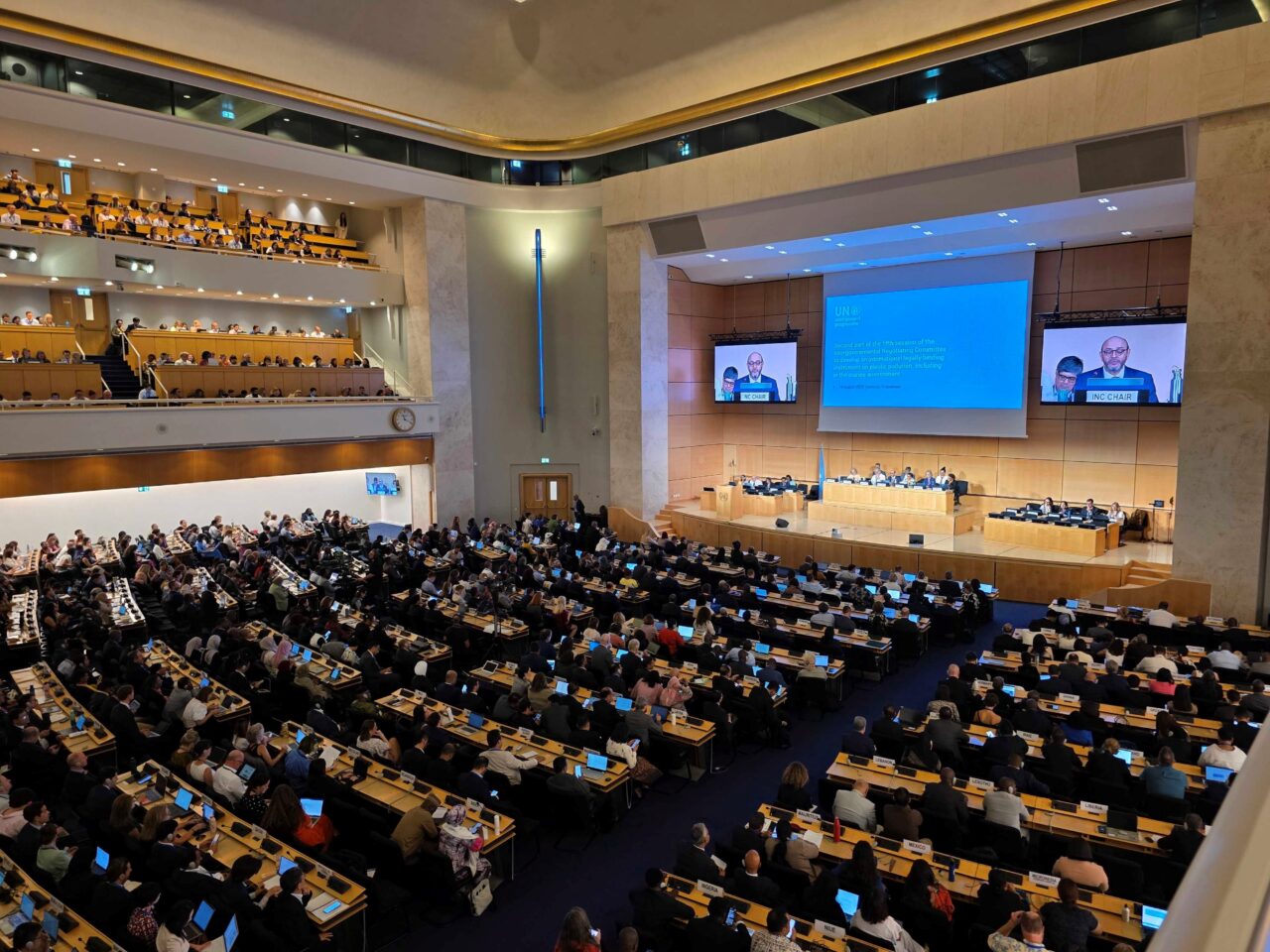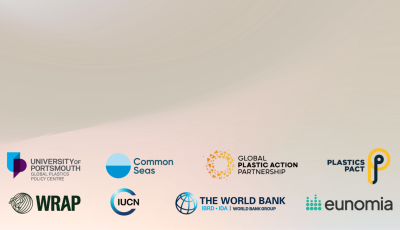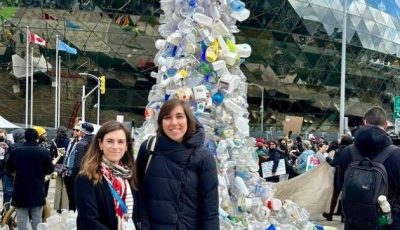Already 257 days over schedule, Global Plastics Treaty negotiations have once again ended without an agreement. After years of concerted efforts, there was a palpable sense of frustration among ambitious countries and observers alike as final talks were adjourned for a second time.
However, throughout the talks, we saw a rising tide of resolve – and even defiance – among member states, observers and rightsholders alike who demanded that the treaty text reflect the ambition in the room.
Dr. Charlotte Davies, Executive Director of Common Seas, comments: “The mounting plastics crisis impacts us all, and the evidence is clear: we need to act. For countries like Small Island Developing States, who are disproportionately impacted and rely on global action to stop the flow of plastics at their shores, stalling progress presents an existential threat.”
The latest proposed text
During closing plenary in the small hours of this morning, the latest revised Chair’s text was rejected by the majority of countries.
The text reflects some incremental improvements on the previous version, shared just 24 hours earlier. However, while acknowledging that current global levels of plastic production and consumption are unsustainable, the latest draft from the chair does not mention a binding production cap.
Additionally, it remains mostly voluntary in nature, without global rules on critical elements such as problematic plastics, chemicals of concern, protection of health and just transition. The new draft has also softened the language on financial mechanisms, a crucial point for developing nations.
The majority of countries argued that the text falls short of delivering the objective of UNEA Resolution 5/14. Therefore, negotiators are set to revert to the version drafted during the last round of talks in Busan last December.
Countries reflect a rising tide of ambition
It is clear that an ambitious majority of countries remain unshaken.
Speaking in the closing plenary session, Grenada stated: “Every day we fail to act decisively is a day that this crisis escalates, leading to irreversible damage of our ecosystems, and a greater burden on our future generations. The urgency of this crisis demands a treaty with the strength to match the scale of this problem.”
Throughout the weeks, a growing number of countries supported proposals to maintain key elements of the treaty text:
- A proposal by Switzerland and Mexico supports global control measures for plastic products and chemicals in products, supported by at least 130 countries.
- Panama’s re-submitted proposal from INC5.1 for binding global targets to reduce production of primary plastic polymers, supported by around 89 countries.
- A proposal demanding a stand-alone article on health, supported by 120 countries.
However, key areas of concern remain for many of the countries most disproportionately affected by plastic pollution.
During the final plenary, SIDS countries reiterated the need for recognition of their unique circumstances, specifically through global measures to address existing plastic pollution, and new, equitable and accessible financing.
Speaking on behalf of the Alliance of Small Island States, Palau commented: “It is unjust for SIDS to face the brunt of yet another global environmental crisis we contribute minimally to. We must remain resolute and determined. Together, we must deliver.”
Concerns raised over the process
It is becoming increasingly clear that delivering will require an urgent change in course – and perhaps in process.
Several countries highlighted a lack of clarity and transparency in process, with a growing number highlighting that consensus cannot be used as a shield against progress. SIDS also raised the need for more time for small delegations to regroup on a regional level and build responses as new iterations of text are presented.
And, with observers excluded once again from negotiation spaces – even cut off during closing plenary – concerns are once again rising about the inclusivity of the process.
Looking ahead
Countries must now urgently build on the changing course of negotiations to ensure we secure nothing less than a just, ambitious and effective treaty.
This must include a truly full lifecycle approach, including production measures, provisions to regulate chemicals of concern and protect human health, and a robust implementation framework including new, equitable financing.
In the meantime, many countries are already taking bold action to tackle plastic pollution at the national level. We continue to work with SIDS including Tuvalu, Papua New Guinea, Guinea Bissau, Saint Lucia and Grenada to co-develop and enhance national policy strategies that have the potential to reduce plastic pollution by 75% over the next 10 years.
These countries – while on the frontlines of a plastics crisis they did not create – are leading the way in developing tailored solutions in line with global ambition. Now, it is time for the world to follow.
Final thoughts
Common Seas stands with all those who are holding the line. From ambitious countries to frontline communities, from scientists to youth advocates, the message is clear: we will accept nothing less than an ambitious, effective treaty.
Our health, our environment and our futures depend on it.

“The mounting plastics crisis impacts us all, and the evidence is clear: we need to act. For countries like Small Island Developing States, who are disproportionately impacted and rely on global action to stop the flow of plastics at their shores, stalling progress presents an existential threat.”
Dr. Charlotte Davies, Director of Common Seas
Photo credit: Trixie Guerrero, Break Free From Plastic.

“The mounting plastics crisis impacts us all, and the evidence is clear: we need to act. For countries like Small Island Developing States, who are disproportionately impacted and rely on global action to stop the flow of plastics at their shores, stalling progress presents an existential threat.”
Dr. Charlotte Davies, Director of Common Seas.





